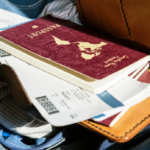Immigration Detention: Human Rights, Policy, and Reform
Immigration detention is a practice employed by many countries around the world as a means of controlling and managing immigration. However, the use of detention raises significant human rights concerns and has sparked debates about the need for policy reform. In this blog, we will explore the complex issues surrounding immigration detention, including its impact on human rights, current policies, and the call for reform to ensure fair and humane treatment of immigrants.
Understanding Immigration Detention
Immigration detention involves the confinement of individuals who are suspected of violating immigration laws or whose immigration status is in question. Detention may occur at various stages of the immigration process, including upon arrival at a border, during immigration enforcement operations, or while awaiting deportation or removal.
The primary goals of immigration detention include ensuring compliance with immigration laws, preventing unauthorized entry or stay, and facilitating the removal of individuals who do not have a legal right to remain in the country. However, the use of detention has raised significant ethical, legal, and human rights concerns.
Human Rights Concerns
1. Arbitrary and Indefinite Detention
One of the most significant human rights concerns associated with immigration detention is the practice of arbitrary and indefinite detention. In many cases, individuals may be detained without proper legal process, access to legal representation, or the opportunity to challenge their detention. Moreover, the lack of time limits on detention can result in prolonged confinement, often with no clear path to resolution.
2. Conditions of Confinement
Immigration detention facilities are often criticized for substandard conditions, including overcrowding, inadequate healthcare, poor sanitation, and lack of access to legal counsel and support services. Detainees may also face physical and psychological abuse, discrimination, and other forms of mistreatment while in custody, raising serious human rights concerns.
3. Impact on Vulnerable Populations
Immigration detention can have a disproportionate impact on vulnerable populations, including asylum seekers, children, pregnant women, survivors of torture or trauma, and individuals with mental health conditions. Detaining vulnerable individuals without appropriate safeguards or support mechanisms can exacerbate their existing vulnerabilities and lead to further harm.
4. Family Separation
Detention policies that result in the separation of families, particularly the separation of children from their parents or guardians, have raised widespread condemnation and outrage. Family separation can have devastating consequences for the well-being and mental health of both children and parents, violating their fundamental human rights and causing long-lasting trauma.
Current Policies and Practices
Despite the human rights concerns associated with immigration detention, many countries continue to use detention as a routine part of their immigration enforcement policies. The specific laws, regulations, and practices governing immigration detention vary from one country to another, but common elements include detention centers, detention orders, and immigration enforcement agencies responsible for detaining and processing individuals.
United States
In the United States, immigration detention is managed by the U.S. Immigration and Customs Enforcement (ICE), which operates a network of detention facilities across the country. Detainees may be held in a variety of facilities, including dedicated immigration detention centers, local jails, and private prisons. The U.S. immigration detention system has faced significant criticism for its treatment of detainees, including issues related to conditions of confinement, due process, and family separation.
European Union
The European Union (EU) has its own system of immigration detention, governed by various EU directives and regulations, as well as national laws and policies. EU member states may detain individuals who are awaiting asylum decisions, facing deportation or removal, or considered a flight risk. Detention conditions and practices vary widely across member states, with some countries facing criticism for their treatment of detainees and lack of adequate safeguards.
Australia
Australia has a strict policy of mandatory immigration detention for individuals who arrive in the country without authorization or whose visas have been canceled. The Australian government operates a network of immigration detention centers, including offshore facilities in Nauru and Papua New Guinea, where asylum seekers and other unauthorized arrivals are held while their claims are processed. Australia’s immigration detention policies have been the subject of widespread criticism from human rights organizations, which have raised concerns about conditions of confinement, human rights abuses, and the impact on vulnerable populations.
The Call for Reform
In recent years, there has been growing recognition of the need for reform of immigration detention policies and practices to ensure compliance with international human rights standards and principles. Advocates for reform argue that detention should be used as a measure of last resort, with strict safeguards to prevent arbitrary detention and protect the rights and well-being of detainees.
Key Areas for Reform
Alternatives to Detention: Governments should explore and implement alternatives to detention, such as community-based programs, case management, and reporting requirements, which have been shown to be effective in ensuring compliance with immigration laws while respecting human rights and dignity.
Access to Legal Representation: Detainees should have access to legal representation and support services throughout the detention process, including the right to challenge their detention, seek asylum, and appeal immigration decisions.
Safeguards for Vulnerable Populations: Special attention should be given to the protection of vulnerable populations, including children, pregnant women, survivors of torture or trauma, and individuals with mental health conditions, who may be at greater risk of harm in detention.
Transparency and Accountability: Governments should ensure transparency and accountability in the immigration detention system, including independent monitoring of detention facilities, regular inspections, and mechanisms for complaints and redress.
Family Unity and Child Protection: Policies that result in the separation of families, particularly the separation of children from their parents or guardians, should be prohibited, and measures should be taken to ensure family unity and child protection.













